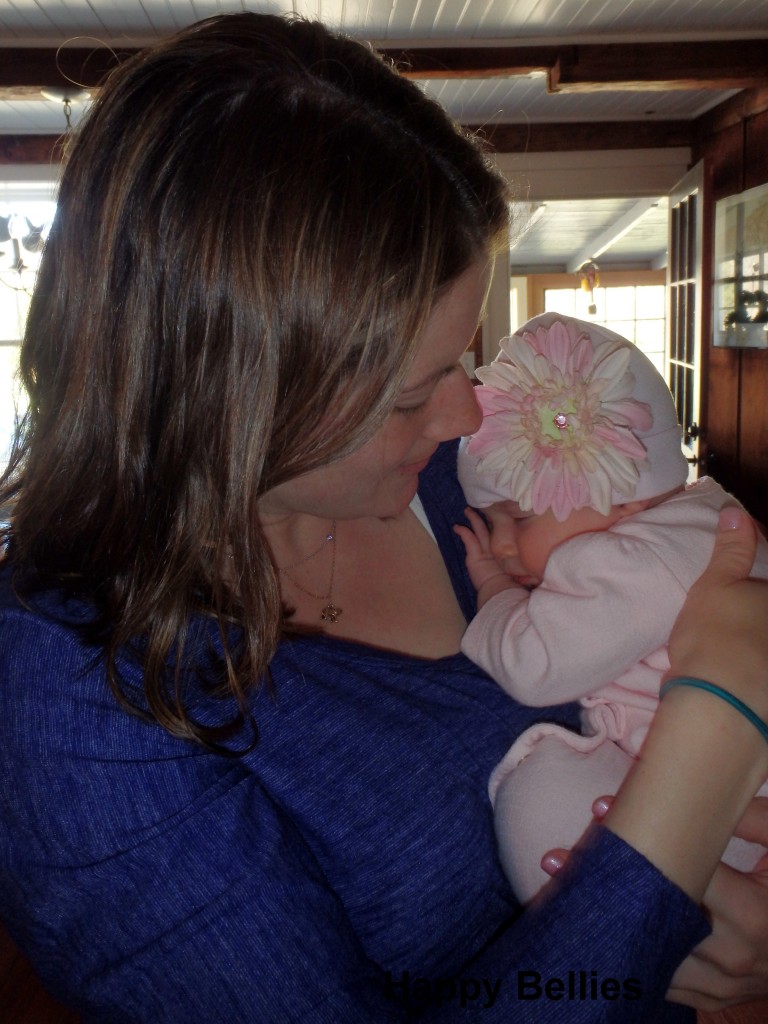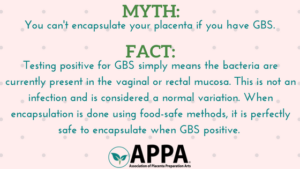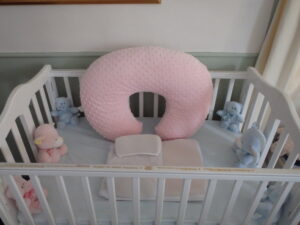Placenta Encapsulation Service FAQ
Tara Carpenter, PES.
Serving new mothers in Vermont and New Hampshire with an FDA-approved traditional Chinese medicine method since 2011.

What are benefits of placenta capsules?
Scientific research shows placenta to contain iron, protein, B12, and hormones to promote healing in the postpartum period. Capsules can boost energy, balance hormones, decrease baby blues, increase breast milk, and tonify uterus. Updated research on ingesting placenta capsules here. My 13-minute placenta video answers this question more fully.
Why hire a PBi-Trained Encapsulator?
I am a PBi-Trained Encapsulator and:
- Follow strict OSHA guidelines
- Renew my certificate in Food Safety & Handling
- Knowledgeable in the benefits of placentophagy
- Trained in PBi method of placenta encapsulation
- Have a network of experienced professionals
- Able to answer your questions
- Check in during your postpartum period
What medications during pregnancy or labor make it unsafe to encapsulate?
As a PBi Placenta Encapsulation Specialist®, I do not make any recommendations on which placenta is suitable for encapsulation. We leave all decisions as to the viability of the placenta up to the care providers. If the mother and the provider deem the placenta healthy at birth, and want it prepared in capsule form, I can provide that service for her..
Can I use capsules if I have GBS+?
It depends on the preparation method used because not all Encapsulation Specialist’s use the same safety standards. GBS+ is not typically an issue for placenta encapsulation when the placenta is properly prepared using a cooked method. Never ingest a GBS+ placenta that has been prepared “raw”. I am trained to use a Traditional Chinese Medicine (TCM) method that is on file with the FDA; a method that addresses the issue of bacterial pathogens like group B strep. I have safely prepared capsules for GBS+ moms since 2011. Read more…

How does this work?
It’s preferable to reserve your spot 1+ month before estimated due date by sending an email to tara@happybellies.net. I do my best to respond to you within three business days with an intake form for you to fill out.
The encapsulation is completed in your home after birth. I bring all necessary supplies and only need access to sink, stove-top, electrical outlet, and bit of counter space. The entire process is completed in two steps (#1 step takes 2-3 hours and #2 step takes 1-2 hours). In between steps, the placenta is left to dehydrate on the kitchen counter in a machine that is bungee corded closed. Your kitchen will be sanitized after each step.
You might feel awkward to have me in your home and though I may be a minor inconvenience, I do not consider myself a guest nor expect to meet the new mother or baby. I come and go quietly; leaving a dosage card next to the capsules upon my completion. I am used to being in the home when parents are still recovering at the hospital and bring all that I need.
You receive placenta capsules, tea/tincture, and dosage instructions. Placenta prints are an additional $35 fee.
How to get my placenta from hospital?
Many hospitals in Vermont and New Hampshire are familiar with my work and moms requesting to have a placenta released is not strange anymore, though each hospital has a unique set of policies and procedures; some require a release waiver to be signed others don’t say a thing. I recommend you share in advance with your care provider(s) about your plan to keep your placenta for consumption after birth.
Once you book I will send an informative letter that you can share with your care birth team about my placenta encapsulation service and the standards I adhere to.
I have encapsulated in Vermont (+ New Hampshire) since 2011 and have not had a hospital prevent a mom from taking her placenta home unless there is an infection present. If you contract an infection during or immediately after birth, you will not be allowed to take home the placenta.
Many parents send the placenta back with a friend or family member to put in their home fridge. Or dad (doula, grandma, etc.) will step out and bring it home. Once there (and depending on my availability) we will arrange a time to encapsulate. Other moms give birth far from home and getting the placenta back before they are is not possible. In this circumstance I will walk you through how to care for your placenta from the time of birth until I come to encapsulate.
Why encapsulate in my home?
To comply with state/federal guidelines and create a clean, safe environment, I encapsulate in your home because:
- It is not legal for me to transport a placenta that I will be encapsulating for you to consume.
- There are currently NO facilities in United States approved for the preparation of placenta pills.
- You can be certain you get your placenta and ONLY your placenta.
- You know exactly what happens and that your placenta is stored at proper temperatures at all times.
- If you choose to, you can observe capsules being made 😉
- You can be assured placenta is prepared in a clean environment. Without regular health inspections/monitoring, only way to ensure capsules are prepared in a clean environment is prepare them in your home by a Specialist trained to handle blood properly.
It is perfectly legal to have your placenta prepared at your residence (or that of a friend or family member). You only get one hormonal-rich, nutrient-dense placenta when you have a baby, maybe two if you have twins! If your placenta is handled in an unsafe manner, over-processed, becomes ridden with mold due to excess moisture then you lose an opportunity to get the benefits of your placenta in your postpartum period.
What is your training and certifications?
As a PBi-Trained Placenta Encapsulationist with Placenta Benefits (leading resource in placenta encapsulation) I learned to prepare placenta medicinally in 2010 with a Traditional Chinese Medicine method on file with the FDA. I update my trainings and certificates with “OSHA Bloodborne Pathogens” through Biologix Solutions and “ServSafe Food Handler” with ServSafe. I follow the same procedures used in a food service establishment. My handling and disinfection practices meets strict Federal (OSHA/EPA) and local guidelines and PBi-standards meet the same EPA guidelines for licensed small laboratories handling blood-borne pathogens and medical waste.
As a PBi-member, I have access to a comprehensive database on ALL things placenta to be able to answer any question that you (or your care provider) have. I operate with integrity, safety, and efficiency.
I am worried about the smell…
If your home is properly ventilated with a working hood above the stove and if you’d like a window open, then there is little to no smell. Some describe what smell there is as gingery and like cooked liver. Any smell dissipates quickly once encapsulation is complete.
What if I have an epidural/c-section?
Many moms I encapsulate for have epidurals or cesareans and 9 out of 10 times, the doctor releases the placenta without problem. These new moms benefit as much as those who had un-medicated ‘natural’ births. In some ways, even more, because placenta hormones act as a natural pain reliever to give mom relief during what is a sensitive, vulnerable time. I have moms take the capsules and tea, and not need any other painkiller. Same goes for stitches or epidural after-effects. Updated research on capsules here.
Why do you use a TCM method?
According to Traditional Chinese Medicine (TCM), new moms are considered cold (yin) inside after releasing blood and baby (yang) during birth. One way to return heat (yang) and a flowing balance of energy is to consume “warm” food, such as cooked and/or warm food; including how a placenta is prepared for ingestion.
The TCM method I use to prepare a placenta is one that has been used for centuries and involves a steaming process. I do not offer RAW encapsulation because this method has a cooling effect and can cause a new mom to feel ‘cold’ inside. Ingesting raw placenta is also not a good idea from a food safety perspective. What we want to do is warm the new mother. To contract, not expand. To calm, not stimulate. To ground her in body, mind, and spirit.
Placenta capsules made with a TCM-method are warming to counteract cold and re-establish homeostasis, rebuild blood (chi), and regulate the endocrine functions (thyroid, adrenals) for good metabolism, sleep, and mood. The tea and tincture that I make also has a similar effect.
This method allows you to save any remaining capsules for future use (i.e. returning to work or other stressful situations and menopause). Stored properly, capsules and the nutrients and hormones within, remain potent.
Why TCM capsules and not raw?
I am trained to prepare capsules with a Traditional Chinese Medicine (TCM) method. This is a safe, potent way to ingest placenta capsules. The steaming process I use breaks down the cell walls of the placental tissue; allowing your body to easily access the vitamins, protein, and hormones stored there. Research shows the iron levels in a placenta doubles when prepared using a TCM-method.
Placenta carries bacteria, viruses, and other blood borne pathogens. This is another reason not to ingest raw placenta capsules. The bacteria, and all that exist on and in the placenta and surrounding blood, are inherent in the body and vaginal canal, but once the placenta is born it is exposed to oxygen and the bacteria quickly take on life of their own.
Downsides of raw capsules: Increase postnatal bleeding, decrease breast milk production, cool body, inhibit healing. For these reasons and more, I prepare capsules with a cooked TCM method on file with the FDA.
How many capsules do I get?
Each placenta varies in size, but most women receive 100-200 capsules (115 average) for postpartum recovery. You’ll use about 85 capsules in immediate postpartum period and freeze rest or choose to take until gone. Your body makes what you need and your placenta is perfect size for you!
What if baby comes early or late?
If more than 14 days overdue from EDD or have baby earlier than 14 days before then you are still a client and guaranteed service. There is simply a chance I may be unable to encapsulate within 3 days of birth. If this occurs, you will receive instructions to freeze placenta briefly for what is typically no more than 1-3 days. Frozen properly, the hormones and nutrients in the placental tissue remain intact.
Will insurance cover placenta encapsulation service?
This is a question for your insurance company. Most do not. If you have history of PPD you may have better luck. If you have a Flexible Spending Account (FSA) through insurance then this service might be covered.
Contradictions to ingest placenta?
Placenta capsules made with TCM method have a warming nature that move blood and tonify reproductive organs. If a new mom has an existing “warm” condition (mastitis, flu, infection) the capsules can interfere with her body’s ability to cool down. This is why recommended to stop taking capsules until symptoms of chills, fever, or aches are no longer present.
The only true contraindication for placentophagy would be a uterine infection that affected the placenta (as in, there is or could potentially be an infection in the placental tissue). All other situations as listed below would have to be considered by the care provider.
Contraindications when a placenta may be unable to encapsulate:
- Chorioamnionitis (infection of the membranes).
- Maternal infection during or immediately after labor/delivery.
- Neonatal infection within the first 48 hours postpartum.
- Improper storage of the placenta.
- Not placed on ice within 2 hours of delivery.
- Refrigerated longer than 72 hours before being frozen.
- Placenta not kept under 40°F for the entire storage
- Active infections that may be reacquired.
- Lyme Disease
- Clostridium difficile, commonly referred to as C. Diff
- Mom regularly used tobacco during pregnancy (heavy metals can remain in placenta tissue) – if only for a brief time then up to mom.
Special circumstances that are not contraindications to placenta encapsulation are: Sexually Transmitted Infections (i.e. HSV, HPV, Chlamydia, Gonorrhea), meconium staining, GBS+, Gestational Diabetes, HELLP, PUPPS (some pupp moms wait a few weeks before starting capsules), use of antibiotics during labor, cesarean, epidurals, spinal anesthesia, IV medication (i.e., Nubain, Pitocin, Mag Sulfate).
Having an epidural, induction, or cesarean birth does not typically interfere with the TCM encapsulation process.
My placenta is in freezer, can I encapsulate?
If placenta was frozen shortly after birth and not damaged from “freezer-burn”, it will hold medicinal value. If frozen longer than 6 months, its hormonal potency will have decreased (or reduced to nil) but nutritional value may be present. I encapsulated my placenta when my son was 5 and felt something 😉 Never say never.
What does this cost?
See pricing. Bartering is available. Discount given to teen and single moms. If your placenta cannot be obtained because of high fever or infection during birth or immediately after then I will refund all but the non-refundable deposit within 2 weeks of request. I do have gift certificates that make a wonderful gift for the mom-to-be purchased by a group of her friends. Due to the sensitive nature of this service, please no surprise gifts.
Email tara@happybellies.net to book or make an inquiry.

Disclaimer: Benefits of placenta encapsulation are supported by ongoing research. However, statements on this website aren't evaluated by the FDA and products from these services aren't intended to diagnose, treat, cure, or prevent disease. Please make your decision in regards to consuming your placenta with a licensed medical practitioner. Tara Carpenter is a Placenta Encapsulation Specialist not a doctor, holistic practitioner, pharmaceutical representative, or herbalist. Women who utilize this service take full responsibility for using her placenta capsules at her own risk.

